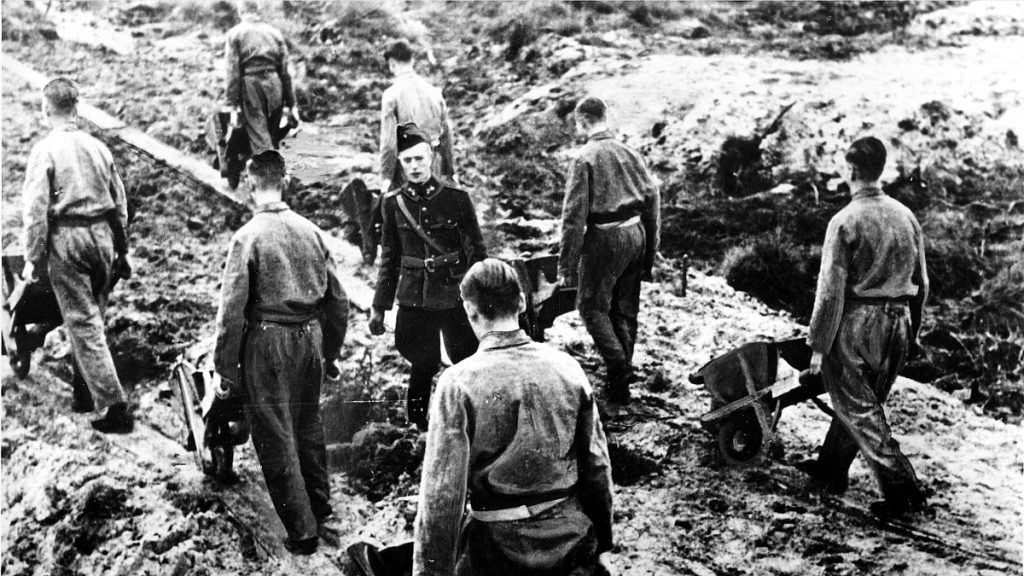Paragraph 1: Unveiling a Dark Chapter: The Netherlands’ War in Court Database
The Netherlands has taken a significant step toward confronting its complex history by unveiling the "War in Court" database, a comprehensive digital archive containing the names of nearly half a million Dutch citizens suspected of collaborating with the Nazi regime during World War II. This unprecedented public release, facilitated by the Huygens Institute with governmental support, provides access to previously restricted records of investigations, trials, and punishments related to collaboration. The digitization of this vast archive marks a crucial milestone in preserving historical memory and ensuring accessibility for future generations, particularly younger individuals less familiar with this sensitive period.
Paragraph 2: Scope and Content of the Archive: From Convicted Criminals to Alleged Collaborators
The "War in Court" database encompasses a wide range of individuals, from convicted criminals to those merely suspected of cooperating with the occupying forces. The archive includes the names of over 150,000 people who faced legal proceedings and potentially received sentences for their wartime activities. Furthermore, it lists approximately 20,000 Dutch citizens who enlisted in the German armed forces, signaling their allegiance to the Nazi cause. Alleged members of the National Socialist Movement (NSB), the largest Nazi-aligned political party in the Netherlands, are also included. Significantly, the archive also incorporates individuals who were ultimately found innocent after thorough investigations, highlighting the complexities of determining culpability in such volatile circumstances.
Paragraph 3: Navigating the Database: Access, Limitations, and Data Privacy Considerations
While the online database provides access to an immense amount of information, it currently limits public access to the names of suspects. Specific details regarding their alleged offenses or the outcomes of investigations are not readily available. To examine the full archive files, including details about specific accusations, individuals must submit formal requests, a process that ensures the responsible handling of sensitive historical data. While the European Union’s General Data Protection Regulation (GDPR) safeguards personal data, its application does not extend to deceased individuals, encompassing the vast majority of names within the archive. However, the Dutch Data Protection Authority emphasizes the sensitive nature of the information, including religious affiliations and political convictions, even for deceased individuals, and stresses the need for careful handling of these records.
Paragraph 4: Historical Context and Impact: Confronting a Painful Legacy
The release of the "War in Court" database has ignited crucial discussions about the Netherlands’ wartime experience and its ongoing impact on Dutch society. The German occupation, spanning from the 1940 invasion to the 1945 liberation, left an indelible mark on the nation, with the Holocaust claiming the lives of over 100,000 Dutch Jews. This historical trauma continues to resonate within the national consciousness. The database’s publication serves as a catalyst for confronting difficult questions about collaboration, moral responsibility, and the legacy of the war. National Archives director Tom De Smet acknowledges the enduring taboo surrounding collaboration and expresses hope that the archive’s openness will facilitate vital dialogue and promote healing.
Paragraph 5: Generational Perspectives and Holocaust Awareness: Addressing a Concerning Trend
A 2023 survey conducted by the Claims Conference reveals concerning statistics regarding Dutch perceptions of the Holocaust. Nearly a quarter of Dutch Generation Z members consider the Holocaust a myth, while over half of all Dutch citizens fail to recognize their country as a Holocaust site. These figures underscore the urgency of fostering accurate historical understanding and combating misinformation. Despite these challenges, a significant majority of Dutch people (77%) recognize the importance of Holocaust remembrance education, suggesting a willingness to engage with this difficult history and learn from its lessons.
Paragraph 6: Implications and Future Directions: Fostering Dialogue and Historical Understanding
The release of the "War in Court" database holds significant implications for both historical scholarship and public understanding of the Netherlands’ wartime past. By providing access to a wealth of previously restricted information, the archive empowers researchers to delve deeper into the complexities of collaboration, resistance, and the legal aftermath of the occupation. Moreover, the database serves as a powerful educational tool, prompting critical discussions about moral choices, the impact of war on individuals and communities, and the importance of preserving historical memory. By confronting this difficult chapter in its history, the Netherlands demonstrates a commitment to facing its past, promoting dialogue, and fostering a deeper understanding of the enduring legacies of World War II.

